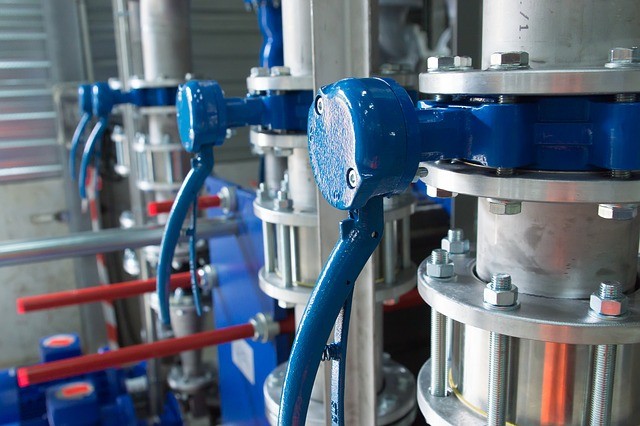What Is The Difference Between a Ball Valve and a Gate Valve?
04-15-19

Difference Between Ball Valves And Gate Valves
Gate valves and ball valves are both popular for controlling flow, but there are important differences.
All types of valve are vital to the operations of countless versions of machinery and equipment, across many industries and applications. It’s hard to imagine a setting without a valve. That being said, not all valves are the same, and they are definitely not a one size fits all part.
Choosing the right valve matters, so understanding the applications, benefits, and advantages of each valve is key.
Understanding Ball Valves
The key difference between ball valves and gate valves is the way in which they are structured. They work in a similar manner but are constructed differently.
Ball valves are so called because they feature a stem and ball. The ball has an opening inside of it. When the valve is on, that opening lines up with the pipe, allowing free flow. Turning the control lever rotates the ball so that the opening is perpendicular to the flow, turning it off.
These valves are also very durable, and last for a long time even under heavy use or long periods without being used. They’re reliable, but they do not offer fine control, so it’s best to stick with a ball valve in situations where you want an easy shut-off or start up without needing to fine tune control. That’s why many people may know these valves as simply ‘shut off valves.’
Ball valves are also ideal in situations where an operator needs to turn things on and off, without losing pressure. They seal very well, as the ball blocks flow, and they are easy to operate, only requiring a simple turn of the valve handle, which can then be visually confirmed.
That being said, ball valves can cost a bit more than gate valves. Another potential disadvantage is the space a ball valve requires to operate. Operators need to ensure that there is a full 90-degree turn available in order to use the ball valve control lever.
Understanding Gate Valves
Again, with the difference between ball valves and gate valves being structural, gate valves operate differently from ball valves. They control flow with a gate, that is lifted out of the way of fluid or other materials. The gate can be round or rectangular. Operators control the valve typically by turning a knob to raise or lower the gate and thus, control flow.
Gate valves do not offer the same immediate shut off capabilities of a ball valve, which is one of the main differences. However, they do offer more finely tuned control over the flow of materials, and over the pressure of the flow. There is no immediate shut off with a gate valve, but in applications where that is not needed but a high degree of control is, they are a better option than a ball valve. For example, in situations where there’s high water pressure potential, a gate valve can prevent a water hammer from forming.
One of the main disadvantages of the gate valve is in its construction. Because it opens and closes with a screw handle attached to the gate, that handle failing can cause big problems — and the handles are unfortunately prone to corrosion depending on the material used for construction, and the liquids or materials the valve comes into contact with. Choosing materials less prone to corrosion, like brass or stainless steel, can help.
The difference between a ball valve and a gate valve also comes down to visual feedback. A ball valve makes it easy to see if the flow is open or closed, whereas with a gate valve, it’s a guessing game.
Choosing the Right Valve
Deciding between a ball valve or gate valve comes down to various factors like price, where and how the valve will be used, and the materials that will be flowing through the valves. You may find that you choose one or the other, or a combination of both.
Whatever valves you ultimately need, you can count on Everlasting Valves to set you up for success. All of our valves, of all types, deliver superior performance for a long time, even in the toughest situations. Our products will reduce your maintenance costs, improve downtime, and help your company profit without sacrificing safety, quality, or efficiency. Simply put, our technology exists to make your business better.
For more information about Everlasting Valves and how our products can help your company, get in touch with us today. We’re happy to answer any questions, provide information, walk you through our custom options, and otherwise get to know you and your business. Give us a call at 908.769.0700, or email our team at [email protected].